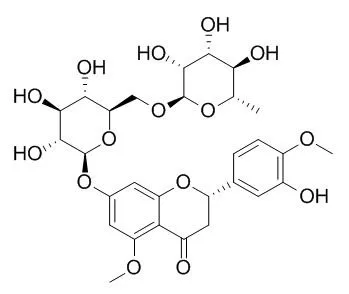Flavonoids form a large class of phenolic substances widely distributed in nature and exhibit several biological effects. P-glycoprotein is part of a large family of efflux transporters found in the gut, gonads and other organs.
METHODS AND RESULTS:
Male albino rats were used for this study. The whole small intestine was flushed with 50 ml of ice-cold saline after sacrificing the animal with an overdose of pentobarbital. The small intestine was isolated and divided into duodenum, jejunum and ileum. Each segment was everted, a 5-cm long sac was prepared, 1 ml of nitrendipine solution was introduced into the everted sac (serosal side), and both ends of the sac were ligated tightly. The sac containing nitrendipine solution was immersed in 30 ml of Dulbecco's phosphate buffer solution (D-PBS) containing 25 mM glucose and the same concentration of different bioflavonoids, viz., diosmin, quercetin, chrysin, Methyl hesperidin and gossypin, was introduced into the mucosal side. Transport of nitrendipine from serosal to mucosal surfaces across the intestine was determined by collecting samples from the mucosal medium periodically at different intervals: 0, 10, 20, 30, 60, 90 and 120 minutes. The samples were analyzed by HPLC. Diosmin and quercetin decreased the transport rate of nitrendipine to nearly the same extent in all regions. Chrysin and gossypin decreased the transport rate of nitrendipine to a greater extent in the ileum than in the duodenum and jejunum. Methyl hesperidin caused inhibition of nitrendipine transport in the ileum and jejunum, but not in the duodenum.
CONCLUSIONS:
All bioflavonoids, i.e., quercetin, diosmin, Methyl hesperidin, gossypin and chrysin, decreased the transport of nitrendipine, a P-gp substrate in the rat intestine. The highest expression of P-gp was found in the ileum followed by the jejunum and duodenum. |






 Cell. 2018 Jan 11;172(1-2):249-261.e12. doi: 10.1016/j.cell.2017.12.019.IF=36.216(2019)
Cell. 2018 Jan 11;172(1-2):249-261.e12. doi: 10.1016/j.cell.2017.12.019.IF=36.216(2019) Cell Metab. 2020 Mar 3;31(3):534-548.e5. doi: 10.1016/j.cmet.2020.01.002.IF=22.415(2019)
Cell Metab. 2020 Mar 3;31(3):534-548.e5. doi: 10.1016/j.cmet.2020.01.002.IF=22.415(2019) Mol Cell. 2017 Nov 16;68(4):673-685.e6. doi: 10.1016/j.molcel.2017.10.022.IF=14.548(2019)
Mol Cell. 2017 Nov 16;68(4):673-685.e6. doi: 10.1016/j.molcel.2017.10.022.IF=14.548(2019)